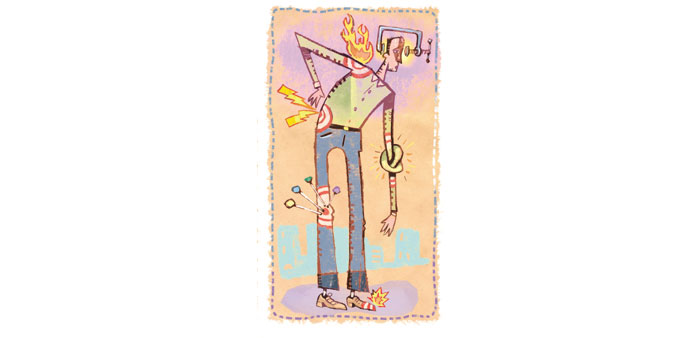By Dr Luisa Dillner/London
Are you stricken by back pain? If so you are not alone: one in five people are. But help is at hand. In addition to the usual recommendations to take painkillers and keep active is a brand new one: a course of antibiotics.
Two research papers from the University of Southern Denmark, published in the European Spine Journal this week, suggest that chronic lower-back pain (defined as lasting more than three months) may be caused by bacterial infection.
The university’s first paper found bacteria (Propionibacterium acnes, which does not usually cause disease) in 46% of tissue samples taken from the slipped discs of 61 patients undergoing surgery.
Its second study of 162 patients with slipped discs, found that those given a 100-day course of antibiotics experienced less pain, slept better and could move more freely on their final follow-up (one year later) compared to subjects who had been given placebos. However, those on antibiotics were twice as likely to have loose bowel movements while taking them.
According to reports, 40% of back pain could be cured by antibiotics. So should you ask your doctor for a course?
The researchers’ hypothesis is that chronic back pain from herniated discs, in which the soft inner cartilage between the vertebral bones in the spine bulges out through the tougher outer coat, is prolonged by bacterial infection.
MRI scans show swelling of the vertebrae and disruptions to the architecture of the bone that could cause chronic pain. But, before you demand antibiotics you should remember that back pain is not a disease but a symptom, and that up to 90% of people recover from it within two to three months.
The National Institute of Health and Care Excellence (Nice) guidelines do not encourage investigating most cases of back pain. Nice only recommends MRI scans for people whose back pain includes red-flag symptoms, such as pain without moving or a high fever. Accordingly, most slipped discs go undetected. Nice is also unlikely to suggest antibiotics as routine treatment.
These studies are quite small and show an association rather than proving that bacteria cause back pain.
However, those who took the antibiotics did experience improvements in their condition, and there is little evidence of other treatments working for back pain, beyond keeping moving, painkillers (including non-steroidal anti-inflammatory drugs) and some cognitive behavioural therapy.
Chronic back pain is a complicated symptom, so if antibiotics can cure it, the researchers could find themselves up for a Nobel prize one day.— Guardian News and Media

